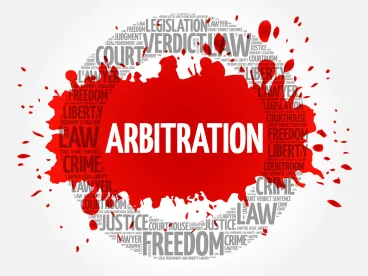The US Supreme Court’s pronouncements on class arbitration have little to do with reinsurance arbitrations. But, when the Supreme Court speaks on arbitrations and construes the Federal Arbitration Act (“FAA”), there may be statements or even holdings by the court that could affect aspects of reinsurance arbitrations, so we pay attention. In the most recent class arbitration decision, the Supreme Court provided some useful tidbits.
In Lamps Plus, Inc. v. Varela, No. 17-988 (U.S. Sup. Ct. Apr. 24, 2019), the Court, in a 5-4 decision, held that under the FAA, an ambiguity in an arbitration provision does not provide the necessary contractual basis for a court to order class arbitration. The majority held that for class arbitration to be ordered, the arbitration provision must provide an affirmative contractual basis for concluding that that parties agreed to class arbitration. In reaching its conclusion, the majority provides guidance that affects all arbitrations, including reinsurance arbitrations.
The principle that underlies the Court’s holding is that arbitration agreements are enforced according to their terms. The Court also emphasized that “ambiguities about the scope of an arbitration agreement must be resolved in favor of arbitration.” The Court noted that while state contract principles may be relied upon to interpret the contract, those principles are preempted where they obstruct the purposes and objectives of the FAA. In this case, state law’s construction of an ambiguity against the drafter ( contra proferentem) was seen by the majority as interfering with the FAA objective of promoting individual arbitration unless there is mutual consent for class arbitration. The dissents were vigorous in opposition to this position.
In so holding, the Court stated that its “conclusion aligns with our refusal to infer consent when it comes to other fundamental arbitration questions.” “For example, we presume that parties have not authorized arbitrators to resolve certain “gateway” questions, such as ‘whether the parties have a valid arbitration agreement at all or whether a concededly binding arbitration clause
applies to a certain type of controversy.'” Green Tree Financial Corp. v. Bazzle, 539 U. S. 444, 452 (2003) (plurality opinion). “Although parties are free to authorize arbitrators to resolve such questions, we will not conclude that they have done so based on “silence or ambiguity” in their agreement, because ‘doing so might too often force unwilling parties to arbitrate a matter they reasonably would have thought a judge, not an arbitrator, would decide.’” (citations omitted).
This holding is important, because if there is a dispute about whether the panel or the court is to decide a gateway question, the majority has made it clear that “[n]either silence nor ambiguity provides a sufficient basis for concluding that parties to an arbitration agreement agreed to undermine the central benefits of arbitration itself.” Fundamentally, the majority of this Supreme Court will not presume any rights under an agreement to arbitrate unless the contract clearly demonstrates that the parties mutually consented to those rights in arbitration. This construction applies to all FAA arbitrations, including reinsurance arbitration.




 />i
/>i
